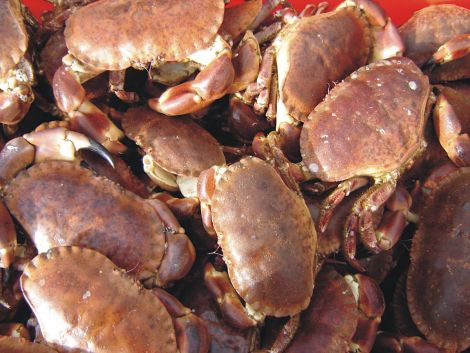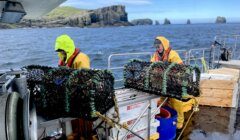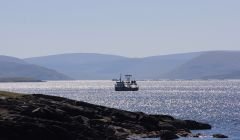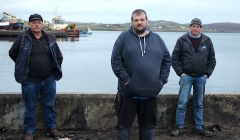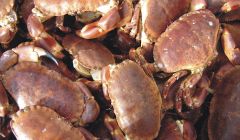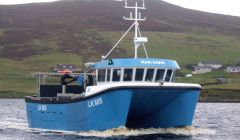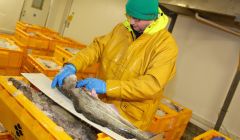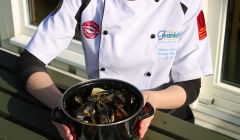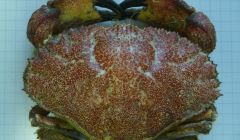Marine / Local shellfish fares well in sustainability guide
SHETLAND shellfish has emerged with flying colours in the latest guidance on sustainable seafood issued by a high-profile conservation group – with the isles’ brown crab ranked as the only “best choice” green-rated option in the UK.
The Marine Conservation Society (MSC)’s new “good fish guide” has classed most British crab and lobster as “fish to avoid”, due to concern about management of the species and concern about whales getting entangled in fishing gear on the west of Scotland.
Of nine different types of Scottish brown crab and lobster, eight were rated as “fish to avoid” or amber under the MSC’s traffic light system, but Shetland brown crab was the sole exception and received a “best choice” rating.
A total of 656 species were rated, of which 148 are “best choice” and 161 are “avoid”. Among the best choices are mackerel, scampi and langoustine, North Sea herring, sardines and scallops.
Other species the MSC advises consumers to avoid include monkfish and Celtic sea cod.
Good Fish Guide manager Charlotte Coombes said it was “great to see” key UK species joining the “best choice” list “including some firm favourites”, and said with 141 approved options there was “plenty to choose from to support sustainable fisheries”.
The MSC says most crab and lobster populations are suffering as a result of poor management, but the islands enjoys unique local control through the Shetland Shellfish Management Organisation (SSMO).
As a result the MCS endorses brown crab caught in Shetland but not that found elsewhere in the UK.
The SSMO manages the number of vessels and amounts they can catch for crabs, lobsters, scallops and buckies in the waters around Shetland.
Following publication of the MSC report on Wednesday, the Shetland Fishermen’s Association said: “It hasn’t made the headlines today, but Shetland shellfish is sustainably caught – and should not be ‘avoided’.”
Become a member of Shetland News
The association also shared the Scottish Fishermen’s Federation heavily critical response to the MCS’s latest guide.
SFF chief executive Elspeth Macdonald said the MCS “doesn’t hide its dislike of mobile fishing such as trawling, so its new ratings on species such as monkfish don’t surprise the fishing industry – they are what we have come to expect from an organisation that would prefer that wild capture fishing didn’t exist, and campaigns endlessly to end what is a legitimate and highly regulated means of food production”.
She claimed the MCS lacks transparency over the process used to generate its ratings, accusing the charity of using information “cherry-picked to suit their narrative”.
“Scottish fish stocks are well managed,” Macdonald said.
“There has been a steady upwards trend in sustainable fishing over the last 30 years by an industry committed to this for the long term.
“Yes, there is more to do, but to demonise our industry and provide misleading information to the public is both unfair and unwarranted. Through their actions, MCS risk driving consumers towards foods that have a much greater environmental impact than low-emission, healthy and sustainable wild caught fish.”
Become a member of Shetland News
Shetland News is asking its many readers to consider paying for membership to get additional features and services: -
- Remove non-local ads;
- Bookmark posts to read later;
- Exclusive curated weekly newsletter;
- Hide membership messages;
- Comments open for discussion.
If you appreciate what we do and feel strongly about impartial local journalism, then please become a member of Shetland News by either making a single payment, or setting up a monthly, quarterly or yearly subscription.






